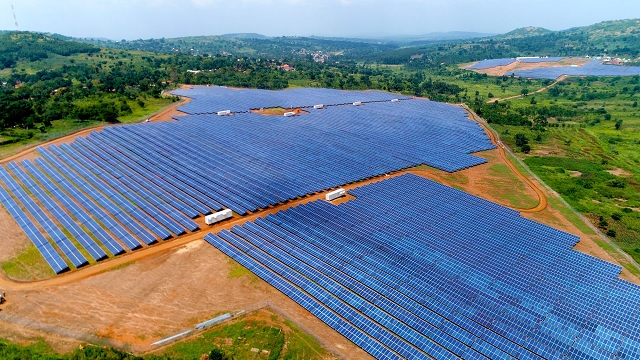
COMMENT | Lamunu Petronilla | Voices in favour of a complete shift to renewable energy have gained momentum all over the world. This has been precipitated by the low carbon emissions observed globally due to the stay-home decrees and decreased air and land travels imposed during the COVID-19 pandemic. Evidence points to the fact that the daily emissions of carbon dioxide had dropped by 17% early April this year. As the lockdown in many countries was lifted, this improvement only became short term as the traffic volumes and the associated pollution shot back to pre-COVID-19 levels.
There is also growing recognition of the profound dangers of extreme climate changes caused by the total amount of carbon that is emitted in the atmosphere mainly by burning of fossil fuels. These fuels are generated from the decomposition of ancient plant and animal matter over millions of years and they include coal, oil and natural gas. Reports indicate that during the combustion process, fossil fuels emit high amounts of greenhouse gases, which have been proven to exacerbate the rising global temperatures, and the frequency of extreme weather events and patterns. Indeed, the lockdown order due to the pandemic has shown us the scale of the response needed to fight the climate crisis.
The biggest question is whether the low carbon emissions observed during the lockdown could provide a basis upon which to push for a move away from fossil fuels and help save the climate. Coincidentally, during the lockdown period, there were reports on effects of climate change. Such include, battling of torrential monsoon rains, widespread flooding and deadly landslides in Bangladesh, India and Nepal, floods in China and Japan, and floods in East Africa due to the anomalously high rainfall that raised the water level of Lake Victoria to the second highest point ever recorded since 1964.
It is important to note that the shift from fossil fuel to renewable energy though possible, it is not a simple task
Could these incidences be a reminder from Mother Nature of the practical interconnectedness of what we already know theoretically about fossil fuel, climate change and the need to respond?
One of the key proposals has been to keep fossil fuels in the ground and replace them with Renewable Energy Sources such as hydro energy, solar and wind. Much as the idea fronted will ultimately contribute to addressing the climate change challenge, it is important to note that the shift from fossil fuel to renewable energy though possible, it is not a simple task.
The challenge of an absolute shift to renewable energy lies in its limitations. For instance, solar generators produce electricity, while existing transport and manufacturing operations typically depend on oil, or even coal. They are also intermittent in nature meaning that electricity can only be generated when the wind is blowing or the sun is shining, thus a need for energy storage which is capital intensive, especially for large-scale renewable energy plants.
It is worth noting though that energy storage capacity is growing as the technology progresses, and batteries are becoming more affordable as time goes on. Fossil fuels are not intermittent and can be turned on or off at any given time. To stop fossil fuel, we would need to drive mostly electric vehicles. While the new electrified vehicles’ market is growing, it will take many years before those technologies dominate. Complementary approaches will, therefore, be needed before transitioning.
Furthermore, a serious energy transition plan needs to be realistic, just and desirable. In the short run, fossil fuel extraction companies should consider the use of clean technologies such as carbon capture instead of releasing it into the atmosphere. Carbon dioxide can then be injected deep underground or used in an industrial process. This is not a solution for oil use, but could make oil use feasible in applications like aviation, where it is very hard to replace.
The renewable energy sources also need to ensure that they match energy demands before they can successfully replace fossil fuels. Other alternatives such as the blue tech can also be explored as it is estimated to reduce combustion engine emissions of non- Carbon dioxide greenhouse gases up to 24%.
Ultimately, the renewables path is clearly the most likely, and the clean economy that will dominate over time.
*******
 The writer is a Research Officer, Oil Governance
The writer is a Research Officer, Oil Governance
and Environmental Sustainability Project @ ACODE_Uganda/CSCO
petronilla@acode-u.org
 The Independent Uganda: You get the Truth we Pay the Price
The Independent Uganda: You get the Truth we Pay the Price



